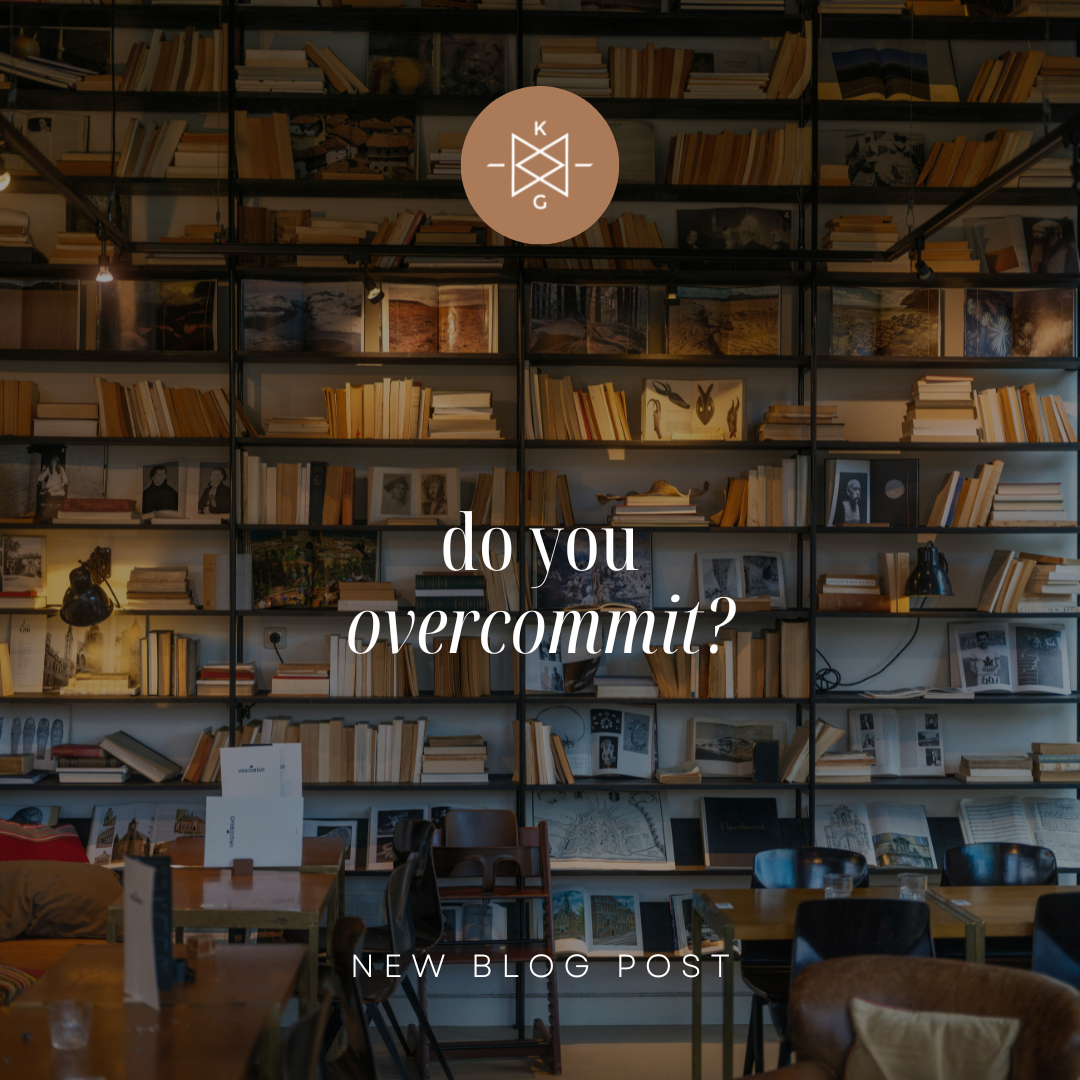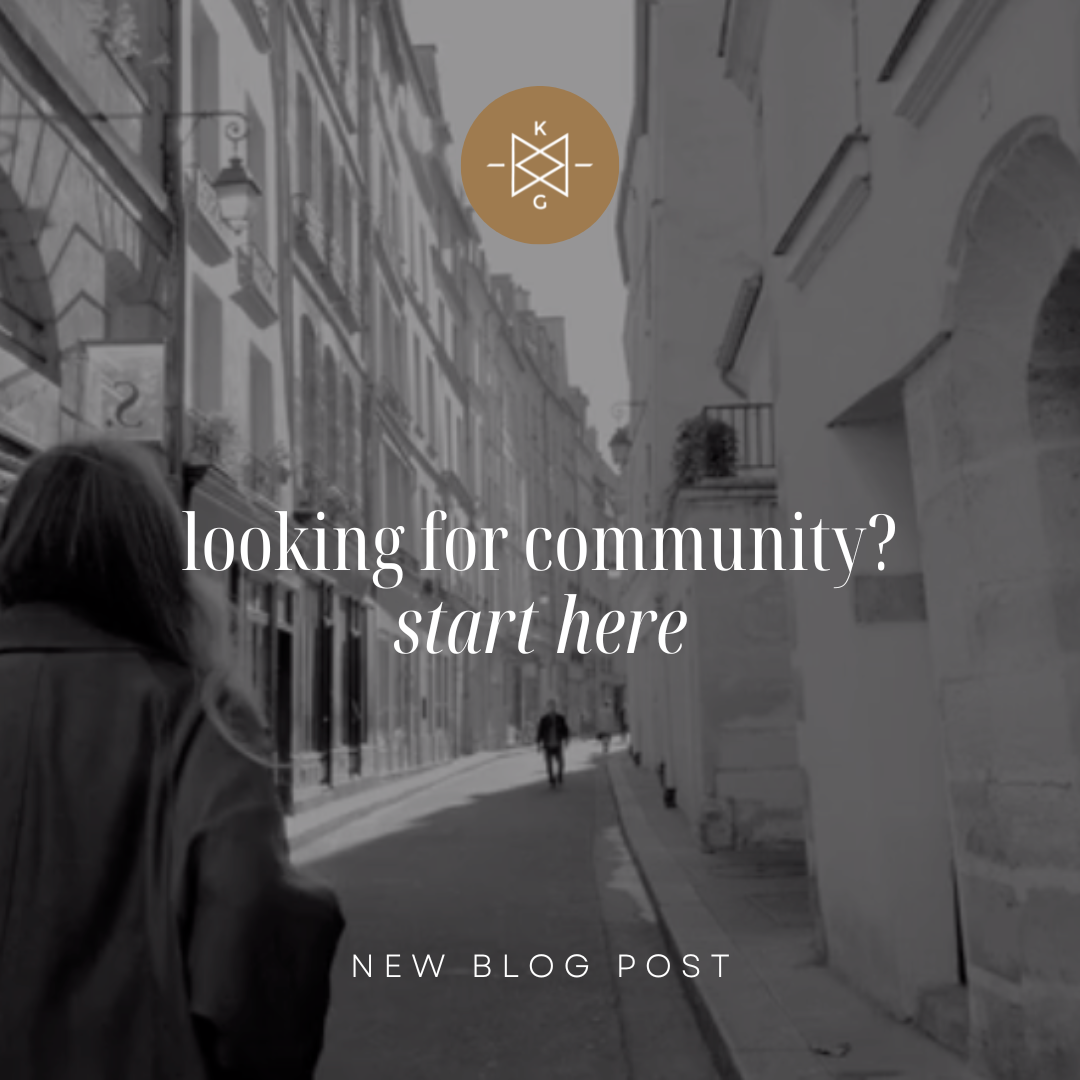
The Blog
Recently Featured
All Blogs
Meditation: How to Find Calm in the Chaos
“I am not what happened to me. I am what I choose to become.”
- Carl Jung
As we move through each uncertain day, I’m blown away by two things: 1) How our attention has shifted to a new way of living (i.e. surviving), and 2) How we must dig deep and step into a new brand of courage in order to stay grounded during this time.
Here’s what I’m clinging to: this is only temporary—we undoubtedly will get through this and come out stronger. Yet with enforced physical distancing and quarantines happening all over the world, creativity is key during this process.
We are collectively becoming more refined in the way we deal with struggle moving forward. If we accept the challenge, we can actually learn how to be better overcomers.
How do we do this? By advocating for ourselves and becoming skilled copers. Fact: these are scary times. Our generation has never seen anything like it. But fear and anxiety have always been there. Spoiler alert: they’ll never leave.
History is calling us to a new standard of wakefulness. I want to look back on this time and be amazed by how resilient we were as a collective group, though physically apart.
I want to be amazed by how we learned to stay calm in the chaos as skilled overcomers.
A proven way we can do this is through meditation. Science tells us over and over how powerful mindfulness is for improving health, sleep, mood, creativity, and brain functioning.
It reduces anxiety in much the same way as exercise does because it decreases cortisol, a pesky stress hormone, and teaches us to live in the present moment. The present moment is typically a much safer place than somewhere “out there” in the past or future. Especially right now.
Today, I invite you to join me as we practice finding calm in the chaos through this short, guided meditation.
Love & Gratitude,
Katie
Meet the New Power Couple: Self-Compassion and the Enneagram
“When you understand, you cannot help but love.”
-Thich Nhat Hanh
I’ll never forget going to my little brother, Gates’, junior high basketball game. He must have been in sixth grade or so. He was a damn good player. Gates and I have an extra special bond as he is 15 years younger than me and was born on my birthday. I’ve always felt a deep connection to him and this parent-like pride in everything he does.
It was a heated game. As point guard, Gates dribbled the ball in from center court. The clock was running down to the bone. The teams were tied. This was a make or break moment and everyone knew it. I could feel the weight of all those parents’ hopes and dreams hanging on the chiseled little shoulders of my brother.
He had to take the shot. With two seconds left, he launched a three-pointer into the air with perfect form and a prayer. The buzzer scowled back. He missed the shot.
His whole body sunk low to the court as all the oxygen on our side of the gym was snuffed out. My heart ripped open and I wanted to rush down there and give him the most embarrassing big sister hug of his life. In that moment, I was more proud of him than ever. I wanted him to know that. I wanted to take away all of his pain.
I didn’t know it then, but looking back, this was compassion operating in its purest form.
I know you have stories to illustrate a similar brand of compassion you’ve felt for loved ones in your life. Yet tell me this: when was the last time you actively participated in it towards yourself?
I honestly can’t think of one time in my experience that I’ve had an organic, visceral example of self-compassion like I did that day for Gates. I am slowly learning to grow that though.
Guess what? If you’re like me and lack this seamless sense of loving-kindness towards yourself, it’s okay. Chances are, you, like me, missed that day in Self-Compassion 101.
Compassion takes empathy one step further and is something we get to cultivate in relationship. Compassion is the feeling that comes up when we join in with another’s suffering and feel compelled to help relieve that suffering. Self compassion points this act of courage inwards, to our “me.”
Thich Nhat Hanh said, “When you understand, you cannot help but love.”
I believe what makes it so difficult for most people to treat themselves with the same compassion they do others is wrapped up in the fact that we simply do not fully understand ourselves. Sure, we put a mask on and present a pretty picture to the world in efforts to gain approval and acceptance. But over time, we lose touch with the truth of who we are and the basic understanding of what motivates our thoughts, feelings, and behaviors.
This is why the Enneagram is such a powerful tool. It uncovers and drills down the story we’ve been living out of—essentially our personality.
Living fully alive—thriving—requires us to wake up and take the steering wheel of our life. The comfortable route involves lots of trance—or falling asleep at the wheel. So, if you’re looking for the easy way out, the Enneagram (or self-compassion for that matter) is probably not for you. Staying comfy and cozy where you’ve always been is.
If you’re looking to get out of your own way and play on your own team, welcome to a new way. Yes, it requires you and I to show up, but also saves us from a lifetime of regret. I can’t think of a more defeating end game than to wake up one distant day from now wishing I’d have valued myself along the way.
So, in walks the handsome couple: Self-compassion and the Enneagram. They go so well together in so many ways. The Enneagram helps us know and understand our story—why we think, act, and feel the way we have for years and how we hid behind a mask called personality to hide the parts of ourselves we weren’t too proud of. This deep well of understanding is the most profound act of love.
Combine it with the tangible practice of self-compassion and all of a sudden we put skin on that understanding. How? By showing up for ourselves and our stories in a new way. Instead of trying to hide behind a mask, we now are able to lean into our real, raw experience and befriend her. No more striving, no more shaming, and no more fixing. Self-compassion allows the pain, hurt, or fear to just be. It also creates space to show loving-kindness as we would to a dear friend so as to move through the pain of life as opposed to dancing around it.
Are you ready for lasting transformation in your relationship with you? Are you tired of playing small in your own life? If so, I’ve got a roadmap. I’d love your company on this exquisite journey.
Love & Gratitude,
Katie
P.S. Want to go deeper in your own practice of self-compassion and the Enneagram? I’d love to hear from you.
When I learned this, everything started to click
“It’s not what you look at that matters, it’s what you see.”
-Henry David Thoreau
Do you ever feel like the harder you work at something, the more harm you actually do?
For example, I’ve been working on my sleep lately. With a five-month-old baby, sleep is something of a luxury, especially as my relationship with sleep has been, let’s just say, chronically fickle. Ever since my mid-twenties hit, that delicious brand of deep shut-eye left the building along with my general sense of “it will all work out.”
After all, with a new-found sense of responsibility and “adulting” came this constant low-hanging fog of anxiety and aimlessness. I started living more in my head— “out there” —as opposed to in the safety of presence. I didn’t know that then though, I was trying to figure it all out, and hard.
As an Enneagram four, my hefty three wing took full effect. Poor thing, she wore herself out.
What I’ve learned is that it’s not actually sleep that’s been the problem all along. It’s my relationship with sleep.
But isn’t this always the case? It’s not actually the thing that’s the problem. It’s our relationship with the thing.
Take food for example. Food is a glorious thing. Yet, when our relationship with food becomes manipulative or out of balance, we suffer. I see this often in therapy as emotional eating is a popular medication of choice, especially for women.
Back to sleep. In my efforts to sleep better at night, I began to fixate on how I would make it better. I took baths, drank sleepy time tea, meditated, exercised in the morning, turned off my phone at night—you get it I tried it all. Yet, it kept me in a striving spiral where the focus was “not enough.” With this scarcity-based approach, I actually produced more anxiety around going to sleep at night.
As you can imagine, this didn’t help me seamlessly drift off at night. Eventually, I had to back up and examine my relationship with sleep, just like I would a relationship with a friend.
How was I feeling towards sleep? What was the pattern at play here? How could I cultivate a different, calmer approach?
When we navigate challenges in life from a place of will power rather than relationship, we will continuously come up short, perpetuating a vicious cycle of self-defeat and shame.
What challenges are you facing? Do they stem from anxiety, money, career, weight, addiction or perhaps health? Before trying to change your behavior or fix something, look at this challenge in light of relationship.
How would you describe your relationship with it? Sit in the observer chair and simply be curious about how you experience this problem. Write it all down.
Chances are, there’s a better way to relate to this challenge in your life. For me, letting go of the expectation around what it should look like is vital. So is staying in the present moment as opposed to getting tangled up in a web of anxious thoughts about the past or future.
What about you?
It’s true, challenges in life are unavoidable. But how we relate to them is 1000% within our control. So, my friend, I suppose it’s time for you and I to become our own expert in relationships. Everything…and I mean everything…is relational.
Love & Gratitude,
Katie
Fix You: Why Self-Esteem Doesn't Work
“The biggest reason most people aren’t more self-compassionate is that they fear they will become self-indulgent. They believe self-criticism is what keeps them in line.”
-Dr. Kristin Neff
I had it all wrong.
I thought if I could do self-help perfectly, I’d be well on my way to confidence and a sense of personal freedom. If I could will myself into the knowledge and experience of self-love and acceptance, I’d have arrived. There might even be a red carpet and some Valentino couture involved.
After all, I used perfectionism to my advantage for years, why stop now? Why not transfer that zipped up effort to the pursuit of self-acceptance and love. With just enough muscle, I knew I could fix her.
Spoiler alert: no matter how many affirmations or bubble baths or self-help books are, had, the “am I enough?” ballot’s still out.
Oh, I went gangster with it, too—you know, the “fixing homework.” I’d recall all my limiting beliefs about myself, write them down, cross them out, and slap ruby red lipstick on them—with feeling.
“I’m unlovable.”
Er…I mean… “I’m the greatest thing since (gluten-free) sliced bread and have every reason to deserve love now.”
Sounds more like an SNL sketch to me. It also sounds reactionary and surface-level, not genuine or believable.
Good news!
You’re not meant to be fixed; you’re meant to be understood.
We can’t will ourselves into loving relationship with ourselves, or anyone else for that matter. Humans aren’t math equations. We’re messy, complex, and perfectly imperfect.
The self-esteem quick fix is much like pumping a poor chicken chock full of toxic hormones to go further at your local Kroger. It may seem full of juicy possibility in the moment, yet it probably has long-term health concerns.
Why doesn’t self-esteem work?
Because it’s based on the way we view ourselves to the degree with which we like ourselves. Sounds benign, right? Sure, until circumstances change. What happens when we fail to get that promotion, call back, book deal—or can’t get the weight off?
The temporary illusion of self-esteem takes a nosedive into a muddy puddle of shame.
Typically, if we depend on circumstances to prop up our self-worth, there’s a hard and unexpected fall coming just around the corner.
There’s more.
Self-esteem can be divisive in an effort to “one-up” those around us. Let’s revisit our earlier limiting belief turnaround. If I replace it with a pep talk that tells me “I’m the greatest thing around,” I’m puffing up my ego (which operates from a place of fear instead of belonging) and pitting myself against the world in an effort to prove myself, not lovingly be with myself.
So, what’s the solution? If I can’t perfect self-esteem, what am I supposed to do?
Four years ago, I picked up a book called Self-Compassion: The Proven Power of Being Kind to Yourself, by Dr. Kristin Neff. It has changed the way I relate to myself and others on every level. It’s also called me into a more caring dialog with myself as opposed to the harsh, striving one that’s been so violent and intrusive for decades.
Rules without relationship breed rebellion.
If I’m constantly inflicting rules on myself instead of trying to relate to myself, I’m on the fast track of self-sabotage rather than self-compassion.
Self-compassion is relational, not circumstantial. It’s based on the awareness that the human condition is frail at best yet capable of resilience.
Self-compassion is cultivated like any relationship—over time. It fills in all the holes self-esteem leaves gaping. When we fail to live up to our expectations, self-esteem prompts two extremes: negative self-talk or puffed up ego, (even…gasp…narcissism).
This is not the case with self-compassion. It comes flooding in when our insecurities, flaws, and shortcomings stare us back in the mirror.
Most importantly, self-compassion binds us together in the reality of our human experience. It doesn’t divide, puff up, or need to isolate. We see ourselves through the lens of “imperfect—yet still enough.”
When that brutal inner critic pipes up, self-compassion says, “Hold on. I see you. I understand your pain. And I am here with you.”
Her voice is firm and tender.
She doesn’t wait on the clouds to pass or the proverbial sun to shine. She speaks her truth in the broken moments.
You’ve known her cadence a long, long time. Then you met fear. It drowned out the love.
You know what?
Your birthright is love, not fear. Just as you learned scarcity’s luring language, you can also unlearn it.
Birds don’t soar because of effort or willpower. They do so by surrender—and risk.
It’s time to work with— not against—the choppy current of life’s wind.
Alone? Not in a million. You’ve got a bold little guide waiting inside to illuminate the path. She was born ready.
Love & Gratitude,
Katie
xoxo
The Enneagram and Your Self-Care Plan
“When you are compassionate with yourself, you trust in your soul, which you let guide your life. Your soul knows the geography of your destiny better than you do.”
-John O’Donohue
This coming weekend, myself and two dear friends are hosting a workshop all about self-care.
Be honest, what do you think about when you hear the term “self-care?”
Spa treatments? Retail therapy? A long bath? A wine night with the girls?
Whereas all of these things sound fun, I’m not sure they are actually self-care. Pampering? Sure. Indulging? Absolutely. Ally, Koula, and myself are convinced we can do better for ourselves.
Oh, and what if self-care is not in fact, selfish. I hear that a lot in my work with clients. It’s a real blocker.
What if self-care is easier (and cheaper) than you think? What if you could actually save tons of money in therapy by practicing a plan that would connect you to your truest self each week? Hell, you may even put me out of a job! :)
There is a time and a place for therapy, however, I believe if we feel empowered to practice the things that bring about positive change and care in our daily experience, we are able to create a life that truly breathes hope and vibrancy.
As an Enneagram coach and therapist, I love equipping people to step out of the limiting box they’ve been in and better understand the true story about who they are. There is simply no better tool in bringing about self-awareness and transformation than the Enneagram.
This weekend, we will go beyond information and do a deep dive into how this wisdom makes a tangible difference as we apply it to our lives through self-care. Ally, a bestselling author and writing coach will help us infuse writing practices into this transformation process. Koula, a brilliant communicator and my favorite yoga teacher on the planet, will show us how movement and mindfulness are scientifically proven to improve our overall health and well-being.
Most importantly, we will all leave with a plan. That’s why we struggle with follow-through, right? We lack a plan and ongoing support. We’ve got that covered.
I know, many of you won’t be able to make it. That’s okay. You’ll have other opportunities to dig into the work of self-care in the future. This is just the beginning of the heartfelt journey we’re on to discover how to truly care for ourselves in a way that promotes connection and empowerment.
If you’re still on the fence and can make it, do yourself a huge favor and register today. Investing in yourself this weekend will not only greatly benefit you, but the ones you love as well. It’s like getting six months of therapy in a solid weekend. (There I go again, putting myself out of a job. ;)
Let me leave you with a journal prompt. Take a moment to ask yourself, "What does self-care mean to you?"
I hope to see you this weekend!
Love & Gratitude,
Katie
P.S. There's still time to join me, Kuola, and Ally at our Self-Care Workshop on February 8-9 in Nashville. Sign-up today!







































